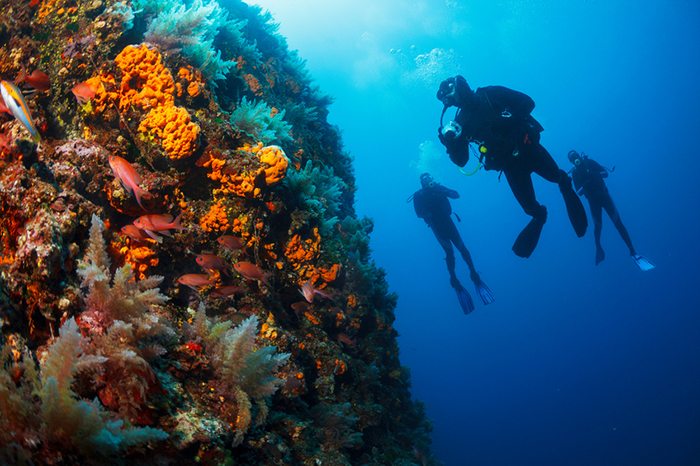Incredible new research out of the Victoria University of Wellington, New Zealand has come to suggest that some sea sponges may be “winners” in the battle of global warming and ocean acidification.
The study was undertaken by PhD student Holly Bennett, Associate Professor James Bell and Professor Simon Davy from Victoria’s School of Biological Sciences, alongside Dr Nicole Webster from the Australian Institute of Marine Science (AIMS). The team explored the physiological reactions of four Great Barrier Reef sea sponge species in regards to rising seawater temperatures and ocean acidification.
The research found, that though the sponges may be sensitive to the rising seawater temperatures, the sensitivity is reduced due to the ocean acidification. This is a result of the sponges receiving nutrition from symbiotic organisms which gather energy from the sun.
“Our results show that some sponges may be able to deal with future predicted ocean conditions, making them future ‘winners’ under global climate change,” says Ms Bennett.
The study was carried out at the Great Barrier Reef, where Ms Bennet had access to some of the most leading coral reef research, through the institute AIMS. The study was able to explore a vast range of impacting correlations between predicted climate change and sponges including the tolerance to ocean warming in early-stages of the species life in contrast to their adult counterparts, a crucial finding for the survival of the species.
“Because of the extent of the Great Barrier Reef system, the research we conducted is highly relevant for global tropical reef ecology.
“Our research confirms the importance of studying the combined effects of ocean warming and acidification, and demonstrates the importance of examining the response of a species across different life-history stages when determining an organism’s overall response to environmental change.”
The study, published last month in high-ranking journal Global Change Biology, is part of a wider project led by Associate Professor Bell and Dr Webster, supported by the Marsden Fund Council from Government funding, managed by the Royal Society of New Zealand.
Holly Bennet is only just beginning with her research on sponges with another study to come shortly. “This next stage of our research will provide us with a greater insight into the importance that sponge associated microorganisms have to sponge’s survival in a high carbon dioxide world.”







